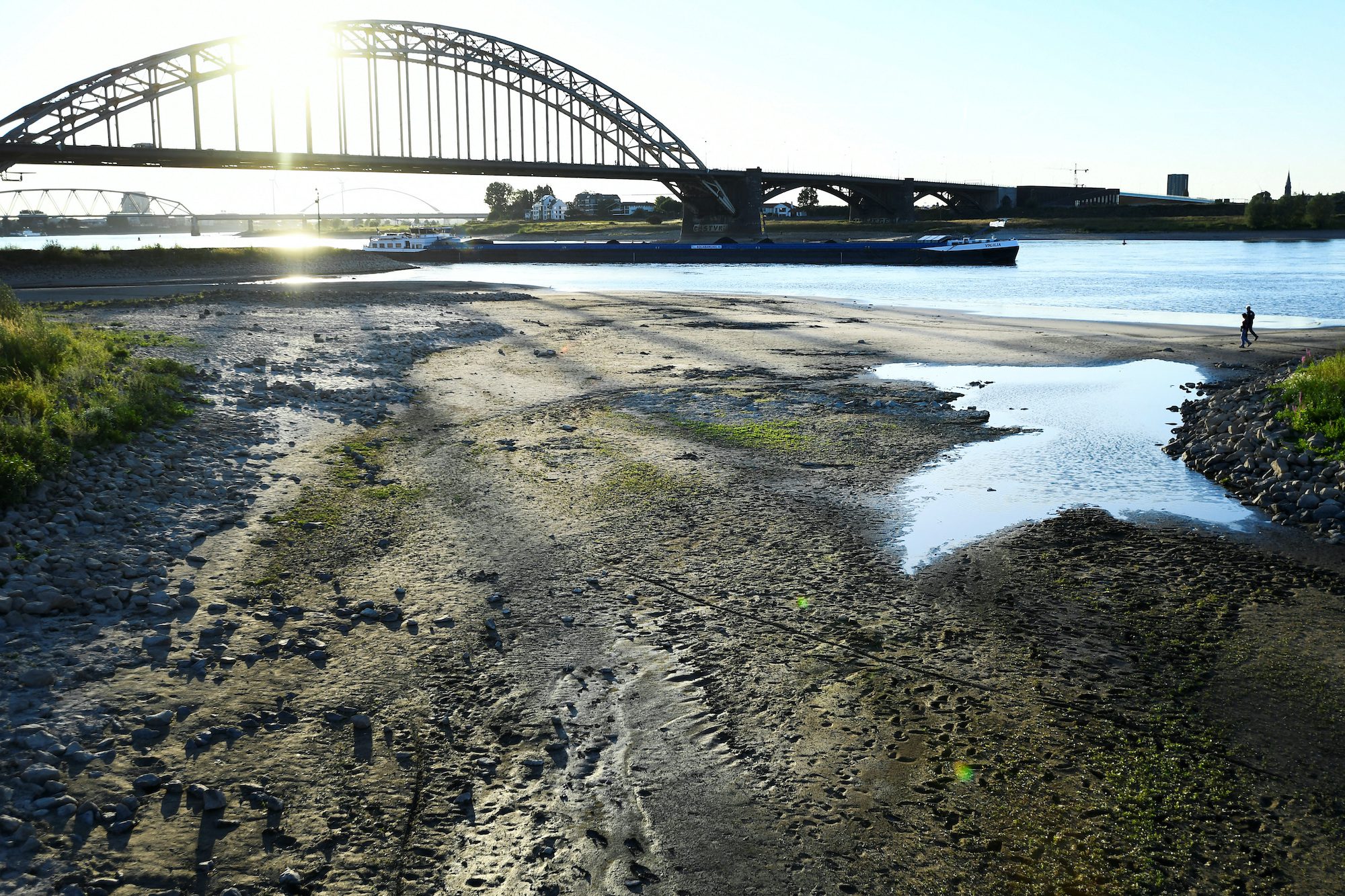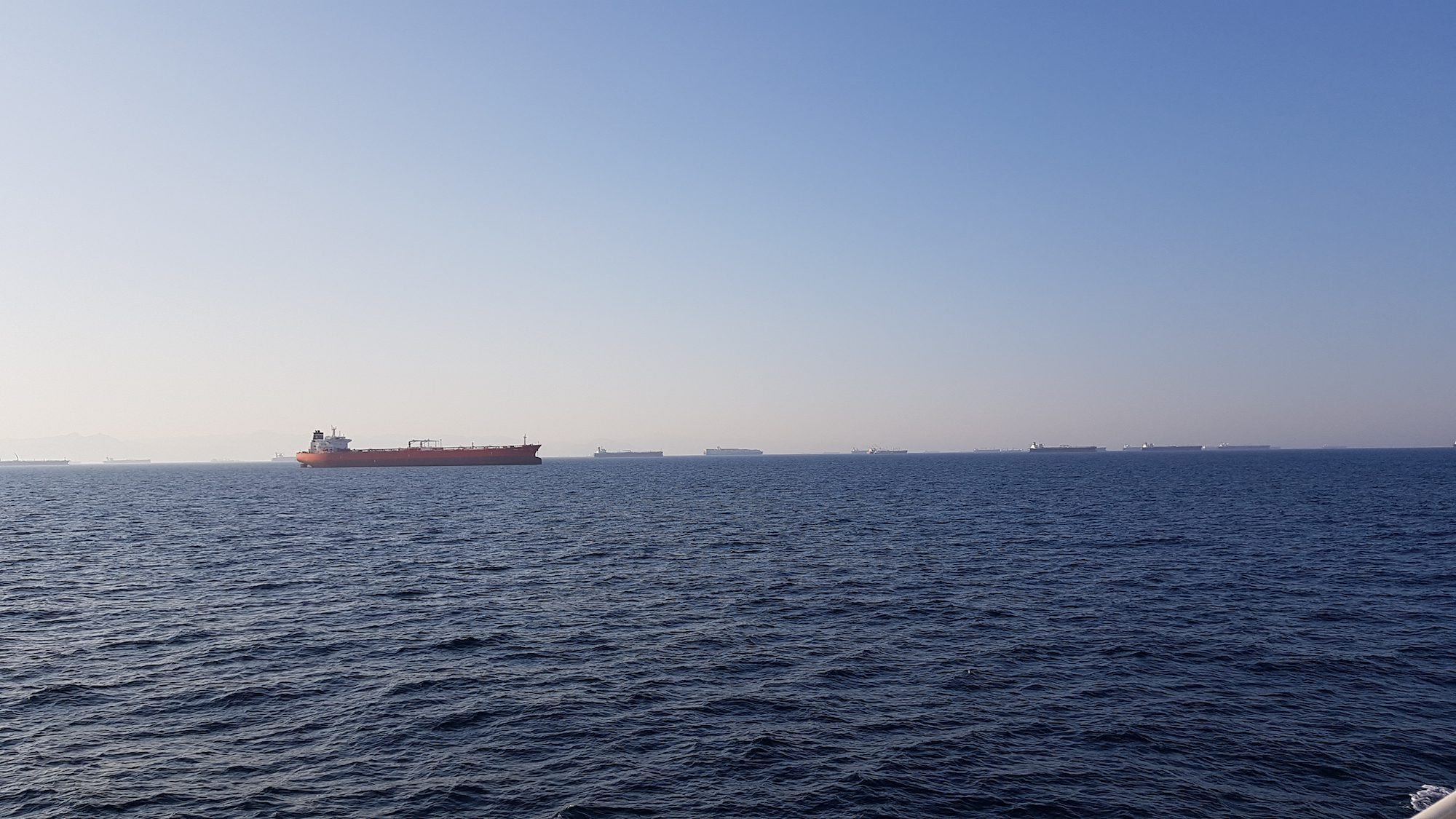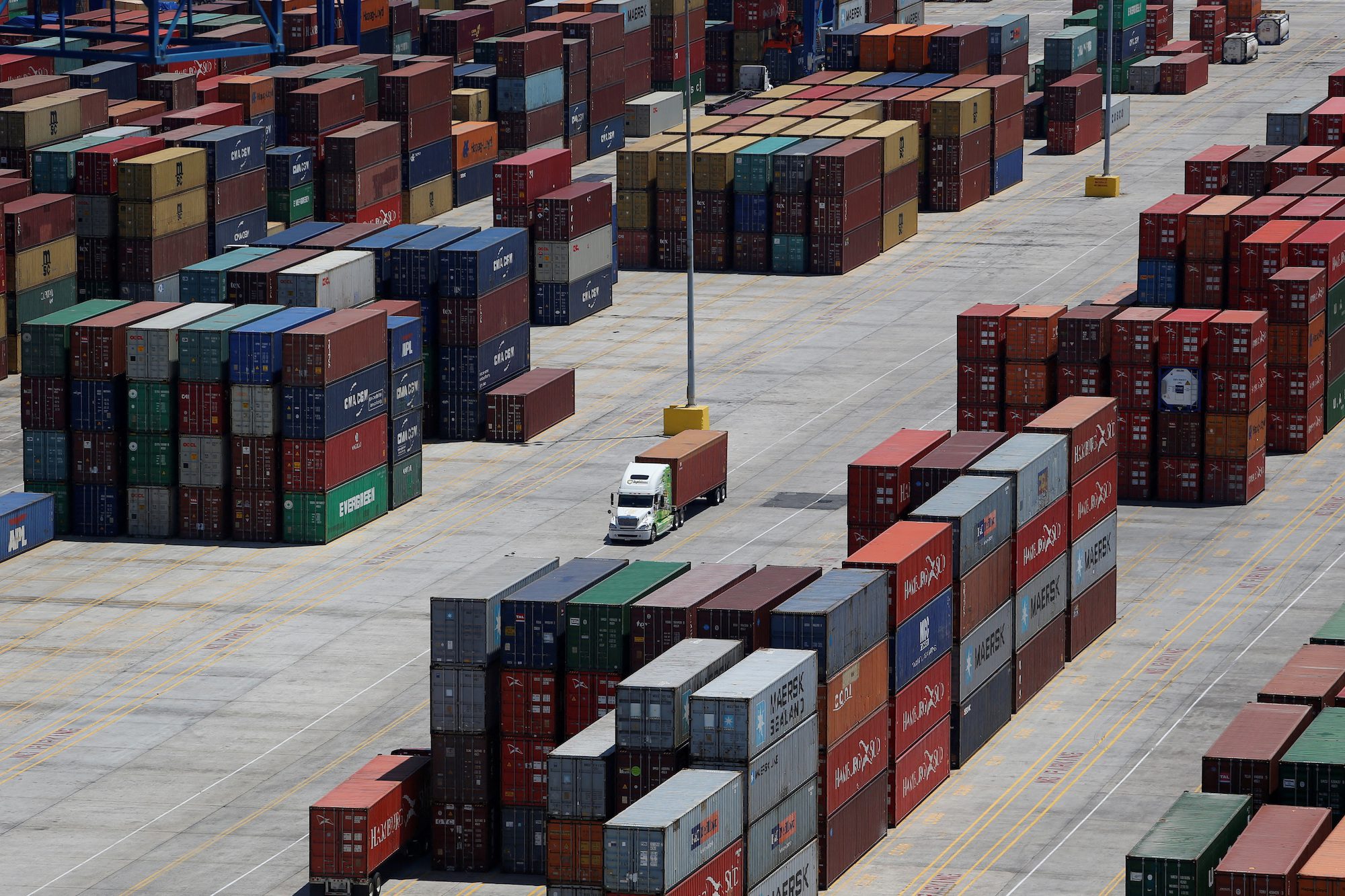By Jack Wittels and Grant Smith (Bloomberg) —
The Rhine River is set to drop well below a critical depth over the weekend, signaling further turmoil for shipments of energy supplies on one of Europe’s most vital waterways.
Water levels at Kaub, a key waypoint west of Frankfurt are poised to plunge to 33 centimeters (13 inches) by Aug. 15, according to data from to the German Federal Waterways and Shipping Administration. Below the 40 centimeter mark, most barges hauling goods from diesel to coal are effectively unable to transit the river.
The climate crisis is compounding Europe’s worst energy-supply crunch in decades. Futures for power, natural gas and coal have soared recently — elevated by tensions with Russia over its war in Ukraine — pushing up energy costs for businesses and consumers as countries try to tame inflation. Already, some governments are outlining steps for what could be a difficult winter.
The Rhine is the most important method for transporting fuels from the Amsterdam-Rotterdam-Antwerp region to Germany and Switzerland, and the river’s shallow depths could disrupt the trade of as much as 400,000 barrels a day of oil products, according to Facts Global Energy.
That’s roughly three-quarters of the volume of goods like diesel and jet fuel that were shipped along the river last year to these two countries.
“A major disruption to an important gasoil/diesel supply route from ARA to inland Europe could not come at a worse time,” the consultancy said in a research note.
The International Energy Agency said the effects of low water could last until late this year for some countries, as they seek sufficient supplies of oil products.
“The product supply situation in central and eastern Europe was already very tight before this latest crisis,” Toril Bosoni, head of the IEA’s oil market division, said in a Bloomberg television interview. “The low water levels make it more costly to get fuel from the seaborne market into that region.”
This is especially concerning for landlocked countries that normally get fuel on the Rhine, she added. “So we’re expecting this situation to continue towards the end of the year.”
Industry Impact
For the moment, many businesses that send cargoes along the Rhine have been able to cope, though that could change if the dry spell is prolonged. Some barges are able to transit the river, even at shallow levels.
Grosskraftwerk Mannheim AG, which operates one of the country’s biggest coal-fired power plants, said Wednesday that while shipments are currently restricted, enough coal is stockpiled at the facility to continue power generation for several weeks.
Chemical maker BASF SE noted that river levels at the 35-55 centimeter mark would limit barge traffic, adding that some vessels would carry less cargo.
The measured water level isn’t the actual depth of the river, but rather a marker for navigability. Shallow water forces barges to carry less cargo, making shipments uneconomic for some carriers.
Restrictions on the water also mean increased reliability on rail and road transport for goods. Barge rates to send some fuels from Rotterdam to Basel, Switzerland have surged to 267 euros ($276) a ton, compared with about 25 euros a ton just a few months ago.
–With assistance from Laura Malsch.
© 2022 Bloomberg L.P.

 Join The Club
Join The Club











